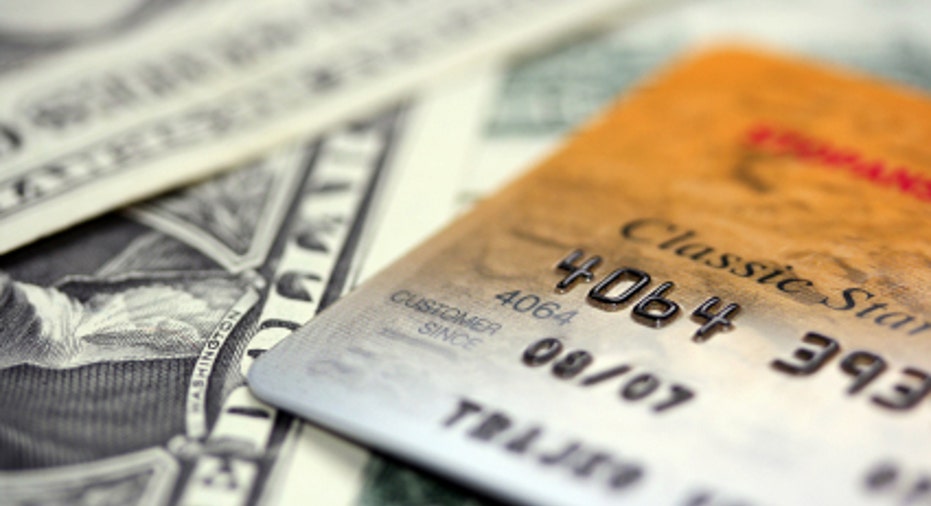Financial Literacy: Back to 1974?

Apparently, as a country, we are a nation of financial ignoramuses. I doubt I'm telling anyone anything they don't already know, but two things cropped up in the last couple of weeks that got me thinking about this:
- Earlier this month, the FINRA Investor Education Foundation released a new study that women are more likely than men to have credit cards with higher interest rates and to have late fees in their financial history. (Doesn't that make sense? True, I'm going with the stereotype, but if women shop more than men, more of them are statistically going to have behaviors leading them to poor choices in how they manage their credit cards.)
- And USA Today just ran a story with the headline, "Millennials struggle with financial literacy."
As a male Generation Xer, I'd love to take this moment to be smug, but I have a feeling if I did make some superior comment, some wiseacre would send me a link to a study about how inept Generation X men are with their finances. Besides, I've had way too many of my own financial nightmares to be smug, and I know plenty of Generation Xers and Baby Boomers who have struggled and continue to struggle with their money. So I think I'm safe in saying that as a collective group of people, Americans' financial know-how seems to be lacking.
So what should we do? Frankly, for us as a nation, I think it's going to be an uphill battle to make any progress on this issue, but I do have some thoughts that, if we all could adopt them, would perhaps improve things.
We need to think like the Amish and live like it's 1974
Now, this will never happen to us as a country, and it would probably be an economic disaster if we all actually stopped buying HDTVs and iPods and started living like it was 1974, but I've thought for a long time that one of the reasons people often feel broke is that we have expensive tastes, and we're often buying expensive technology that needs to be maintained with a monthly fee.
Today's consumer often owns an iPad and an iPhone while paying for cable TV and DVD and online streaming services like Netflix and HuluPlus. Some people -- like myself -- haven't ditched the landline phone yet and are paying for a cell phone plan and a landline phone, which, yes, is madness, but I can't quite let go of the landline. In any case, we have a lot of services that simply didn't exist a few generations ago. I'm not really saying we should all go back to 1974 and ditch our rewards credit cards and our smartphones, but before we buy a new piece of technology we would do well to think about how it is going to affect our budget.
Who is teaching your children about money?
Fortunately, schools are teaching financial literacy more than they used to, which will offset the parents who aren't talking to their kids enough about money. For instance, U.S. Bank is partnering with schools in 25 states (all states where they have branches, of course) for Teach Children to Save Day, for which they're going to talk about the difference between needs and wants (a very important issue), identifying expenses, making trade-offs and finding ways to cut spending.
If kids don't know the basics about saving and spending, there's no way they're going to someday be able to understand why one should avoid revolving debt on credit cards and how important it is to find one with a low interest rate. So at every step, parents should be talking up the basics of spending and saving money.
Introduce your kids to the real world
The basics are great, but why stop there? I have two Millennial daughters, 8 and 10, who really couldn't help but learn about money. I mean, I'm a freelance writer. Sometimes the paychecks are flowing in; other times, I have that sinking feeling that I'm only a few minutes away from getting out a hat and standing on an exit ramp off I-75. I don't go overboard -- I've never shared my panhandling daydream with them -- but I really try to not shield them from reality either. If we don't have the money for something the girls want, or we don't have it right now, they know it.
In fact, I knew recently I was doing my job well when my oldest daughter, upon telling me she was going to someday be a veterinarian, pointedly said to me: "I'm going to have a job that has a steady paycheck."
But it goes beyond that, of course. My daughters know the definition of identity theft, I'm constantly talking to them about how credit cards work, and I believe they truly understand that I have a water bill, an electric bill and a mortgage, and that there is no magic genie just giving us what we have. When we're out and about driving, the girls are often on the lookout for cheap gas. It sounds kind of sad and pathetic, but it's actually kind of a fun game.
When they someday strike out into the world, they probably will still make some boneheaded financial decisions the way their father did. That's part of life. But with any luck, they and their peers will make far fewer and far less severe money mistakes than their predecessors. They'd better, because I guarantee that by 2025, there will be about six new can't-live-without gadgets -- all costing a couple hundred dollars and all with big fat monthly fees.
The original article can be found at CardRatings.com:Financial literacy: Back to 1974?



















